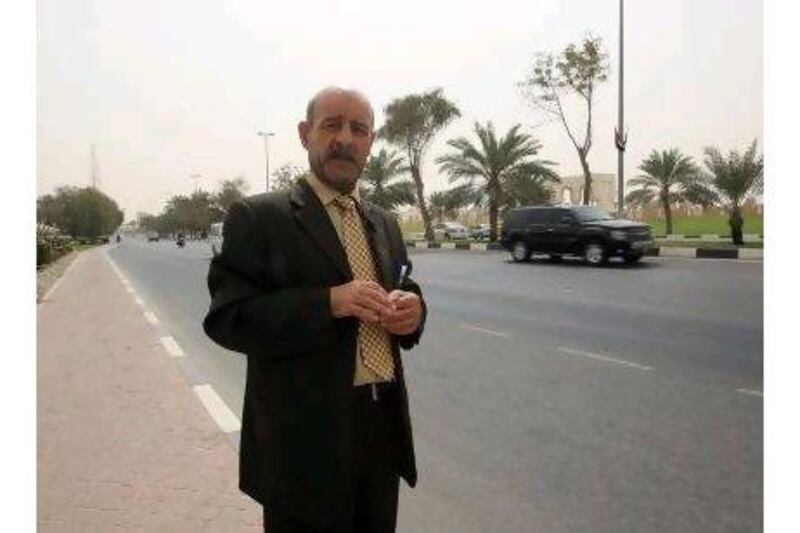A national railway that will span the seven emirates will transform Al Gharbia's "natural, social and economic environments", according to the network's developer.
The first stage of the project, which is scheduled for completion in 2013, will cover 266 kilometres and connect the western cities of Habshan and Ruwais, according to the network operator Etihad Rail. A further link from Habshan to Shah will be ready in 2014. The network will initially be used for freight purposes, but will later include passenger services.
The developer, jointly owned by the Abu Dhabi and the federal Government, held a community seminar in Madinat Zayed's Culture and Youth Centre on Tuesday. At the seminar, the business development manager Nooh Al Hammadi said the railway would have "a positive effect on the local natural, social and economic environments, benefiting the region's nature, people and businesses".
Mr Al Hammadi said that the network would improve road safety and alleviate traffic congestion in the region.
"A fully loaded train can replace 300 lorries from the road and produce up to 80 per cent less carbon dioxide emissions than trucks carrying the same tonnage."
Walls would be built to protect the trains and the wildlife along the track, he said.
Mohammed Al Mansoori, a member of the project management team, said construction would respect the environment.
"The presence of rivers and wildlife was taken into account, allowing passages underneath the rail every six kilometres of the track," Mr Al Mansoori said.
On a social level, Mr Al Mansoori said the railway would "connect the Al Gharbia community like it has never been connected before".
In stage two of the project, to be completed in 2015-16, the railway will be extended to Mussaffah in Abu Dhabi, Al Ain and Dubai and to Ghweifat in the country's western region, which is formally known as Al Gharbia.
Stage three, which is to be completed in 2016-18, will extend the project to Sharjah, Ras Al Khaimah and Fujairah.
The later stages of construction will involve the network being linked to railways in the rest of the GCC.
Mr Al Mansoori said the network would "open the region to the rest of the Emirates allowing for more connectivity and the unity of the entire nation".
The two speakers, who were both originally from Al Gharbia, said there would be numerous other advantages to the local area.
Mr Al Hammadi said a factory was being built in the area that would manufacture the 600,000 sleepers for the tracks.
"We had three options in getting the sleepers," he said. "One was to import them from Saudi Arabia, or any other country, a second was to use medically treated wood from the outside.
"We went for the third option of creating a factory within the western region to benefit the local economy the most."
Mr Al Hammadi said that construction of the railway would "enhance the commercial capacity of small and medium sized enterprises [SMEs]".
When asked if, during the construction phase, there would be a minimum percentage of contracts allotted to local SMEs, Mr Al Hammadi replied: "Honestly, in the first contract, that didn't happen. It wasn't a requirement ... but in subsequent contracts the clause you mentioned will be included.
"What is certain is that if we get bids from two companies, one local and the other foreign, and both have the same qualifications, we'll go for the local company, there is no doubt about that."
Another audience member, Nabeel Mohammed Kahatib, a land surveyor and town planner of 15 years for the Western Region Municipality, said training opportunities needed to be created for the local populace to benefit fully.
"Because the passenger train's completion is five years away there should be local educational facilities created to instruct Emiratis for jobs in the rail sector," he said.
Etihad Rail said that although no such institute had been created, they were committed to developing training schemes for Emiratis in the rail industry.






